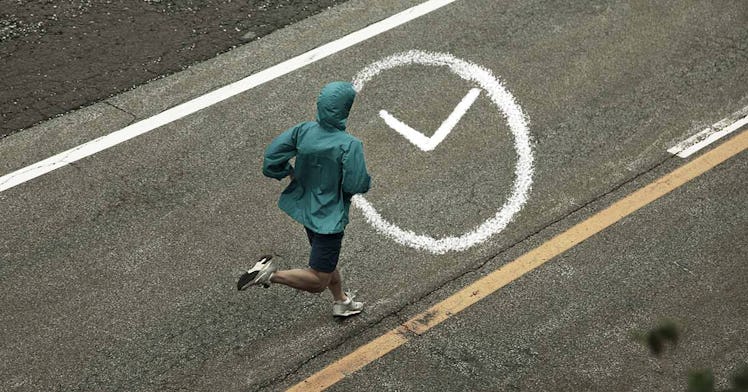There’s A Best Time Of Day To Exercise, And It’s Not When You Think
A new study shows that morning exercise might not be the king of the workout schedule.

If you’re a morning workout evangelist, a new study by Patrick Schrauwen, a professor of nutrition and movement studies at Maastricht University Medical Center, might make you re-examine your beliefs that a.m. sweat sessions are the best. In fact, the study shows that when you exercise matters just about as much as doing it at all — and that exercising in the afternoon may have more health benefits for your blood sugar than doing it before the sun rises.
The study, however, limited it is in scope, does manage to confirm previous research that suggests that working out at different times of day has different benefits and that your workout schedule should take into consideration what you need from exercise.
The Maastrict study examined the metabolic health of men at risk of developing Type 2 diabetes and found that the timing of their exercise could be key to maximizing its health benefits and stabilizing blood sugar.
Studies have long suggested that mornings are the best time to work out if the aim is to sleep better, have a calmer day, lower your blood pressure, or lose weight. Other studies have found that afternoon exercise might lead to better strength and endurance and might be better for people who tend to sleep late (so, not parents.) Evening workouts have their own benefits — they can help you relieve stress and work out your day.
But beyond the fact that you may be able to lift heavier weights after a carb-and-protein-loaded lunch, most people tend to believe that morning workouts are the best way to stay fit. This study claims otherwise.
Schrauwen had been studying the role of exercise in men with, and at risk of, Type 2 diabetes. He pulled data from an experiment he had helped conduct earlier, which asked said men to ride a stationary bike three times a week for 12 weeks, logging the times they exercised.
Using that data, Schrauwen found that the men who exercised early in the day, from 8 and 10 a.m. experienced fewer health benefits than those who used the stationary bike from 3 to 6 p.m, even though they did pretty much identical exercises. The people who exercised in the afternoon experienced more fat loss, greater control of their blood sugar, and better insulin sensitivity than the morning riders.
Schrauwen said, “I believe that doing exercise is better than not doing exercise, irrespective of timing,” which is a relief for those who firmly believe in getting it in when they can, regardless of the time of day.
“However,” he added, “this study does suggest that afternoon exercise may be more beneficial,” according to The New York Times. He explained that exercising later in the day may “help to faster metabolize people’s last meals” in the afternoon or at night. And although the study did not include women and focused on men with high-risk of Type 2 diabetes, it could be something for people to keep in mind as a healthy practice — and it may even serve as an extra bit of encouragement for people who aren’t typically early risers that they’re actually making the healthiest fitness choice possible.
This article was originally published on